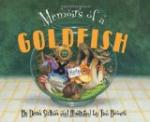I did not. I was an imitation educated man; but, though spurious, I was a sufficiently good counterfeit to pass current for what I had been declared to be. Apart from a little Latin, a considerable training in writing the English language, and a great deal of miscellaneous reading of an extremely light variety, I really had no culture at all. I could not speak an idiomatic sentence in French or German; I had the vaguest ideas about applied mechanics and science; and no thorough knowledge about anything; but I was supposed to be an educated man, and on this stock in trade I have done business ever since—with, to be sure, the added capital of a degree of bachelor of laws.
Now since my graduation, twenty-eight years ago, I have given no time to the systematic study of any subject except law. I have read no serious works dealing with either history, sociology, economics, art or philosophy. I am supposed to know enough about these subjects already. I have rarely read over again any of the masterpieces of English literature with which I had at least a bowing acquaintance when at college. Even this last sentence I must qualify to the extent of admitting that I now see that this acquaintance was largely vicarious, and that I frequently read more criticism than literature.
It is characteristic of modern education that it is satisfied with the semblance and not the substance of learning. I was taught about Shakspere, but not Shakspere. I was instructed in the history of literature, but not in literature itself. I knew the names of the works of numerous English authors and I knew what Taine and others thought about them, but I knew comparatively little of what was between the covers of the books themselves. I was, I find, a student of letters by proxy. As time went on I gradually forgot that I had not, in fact, actually perused these volumes; and to-day I am accustomed to refer familiarly to works I never have read at all—not a difficult task in these days of handbook knowledge and literary varnish.
It is this patent superficiality that so bores me with the affected culture of modern social intercourse. We all constantly attempt to discuss abstruse subjects in philosophy and art, and pretend to a familiarity with minor historical characters and events. Now why try to talk about Bergson’s theories if you have not the most elementary knowledge of philosophy or metaphysics? Or why attempt to analyze the success or failure of a modern post-impressionist painter when you are totally ignorant of the principles of perspective or of the complex problems of light and shade? You might as properly presume to discuss a mastoid operation with a surgeon or the doctrine of cypres with a lawyer. You are equally qualified.




